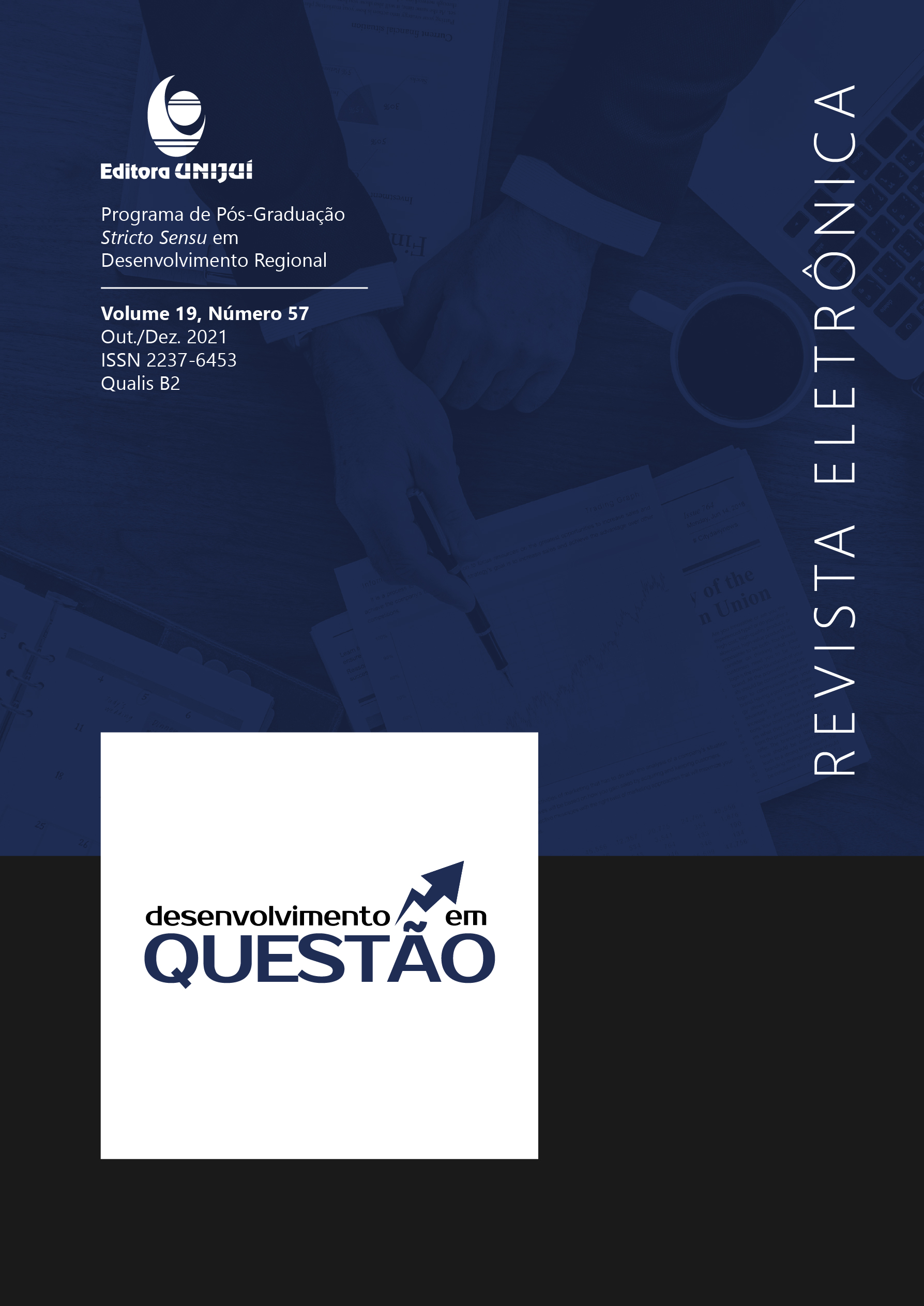Práticas adotadas na suinocultura alinhadas com a economia circular: uma revisão integrativa da literatura
DOI:
https://doi.org/10.21527/2237-6453.2021.57.11906Palavras-chave:
Economia Circular. Sustentabilidade. Suinocultura. Estrutura ReSOLVE.Resumo
Diferentemente da Economia Linear (EL), baseada na exploração dos recursos naturais para produção de bens, a Economia Circular (EC) visa eliminar os desperdícios, otimizar recursos e melhorar o design dos produtos e processos. A suinocultura é caracterizada pelo seu potencial poluidor, e o problema aumenta pelo fato de a carne suína ser a mais consumida mundialmente, se tornando fundamental entender o que tem sido feito pelos agentes para mitigar os impactos causados ao meio ambiente. Destarte, o objetido deste trabalho foi o de identificar quais práticas têm sido adotadas pelos agentes na suinocultura e em que medida estão alinhadas ao que é preconizado pela EC. Para tanto, foi utilizado o procedimento técnico da revisão integrativa da literatura para o levantamento das informações necessárias para atingir o objetivo do trabalho, que teve abordagem quali-quantitativa, se caracterizando com uma pesquisa básica, exploratória, e com recorte transversal. Como principais resultado foram identificadas 14 práticas adotadas pela suinocultura alinhadas ao que é preconizado pela EC, mostrando que há uma evolução dessa cadeia no sentido de uma transição da EL para a EC.
Downloads
Publicado
Como Citar
Edição
Seção
Licença
Ao publicar na Revista Desenvolvimento em Questão, os autores concordam com os seguintes termos:
Os trabalhos seguem a licença Creative Commons Atribuição 4.0 Internacional (CC BY 4.0), que permite:
Compartilhar — copiar e redistribuir o material em qualquer meio ou formato;
Adaptar — remixar, transformar e criar a partir do material para qualquer fim, inclusive comercial.
Essas permissões são irrevogáveis, desde que respeitados os seguintes termos:
Atribuição — Atribuição — os autores devem ser devidamente creditados, com link para a licença e indicação de eventuais alterações realizadas.
Sem restrições adicionais — não podem ser aplicadas condições legais ou tecnológicas que restrinjam o uso permitido pela licença.
Avisos:
A licença não se aplica a elementos em domínio público ou cobertos por exceções legais.
A licença não garante todos os direitos necessários para usos específicos (ex.: direitos de imagem, privacidade ou morais).
A revista não se responsabiliza pelas opiniões expressas nos artigos, que são de exclusiva responsabilidade dos autores. O Editor, com o apoio do Comitê Editorial, reserva-se o direito de sugerir ou solicitar modificações quando necessário.
Somente serão aceitos artigos científicos originais, com resultados de pesquisas de interesse que não tenham sido publicados nem submetidos simultaneamente a outro periódico com o mesmo objetivo.
A menção a marcas comerciais ou produtos específicos destina-se apenas à identificação, sem qualquer vínculo promocional por parte dos autores ou da revista.
Contrato de Licença (para artigos publicados a partir de 2025): Os autores mantêm os direitos autorais sobre seu artigo, e concedem a Revista Desenvolvimento em Questão o direito de primeira publicação.











